Cornell’s alumni, faculty, and students impact economies through innovation and ingenuity.
Beginning in 1908, Frederick Johnson, Cornell Class of 1901, purchased a family home and farm in Westfield, New York.
In 1961, his son, Frederick Spencer Johnson ’43, opened Johnson Estate Winery on that same family farm. When he passed away in 1998, his three children, all Cornellians, inherited that winery.
In 2010, one of those children, Frederick Spencer Johnson, Jr. ’75, MBA ’77, and his wife, Jennifer Schroeder Johnson, MBA ’79, became sole owners of the winery—a family business that has grown and evolved at the hands of three generations of Cornellians for more than 100 years. A fourth-generation Cornellian, Frederick Spencer Johnson III ’10, and his sister, Blaine (Dartmouth Class of 2013), have just embarked on their early careers outside of the farm, a path that follows family tradition.
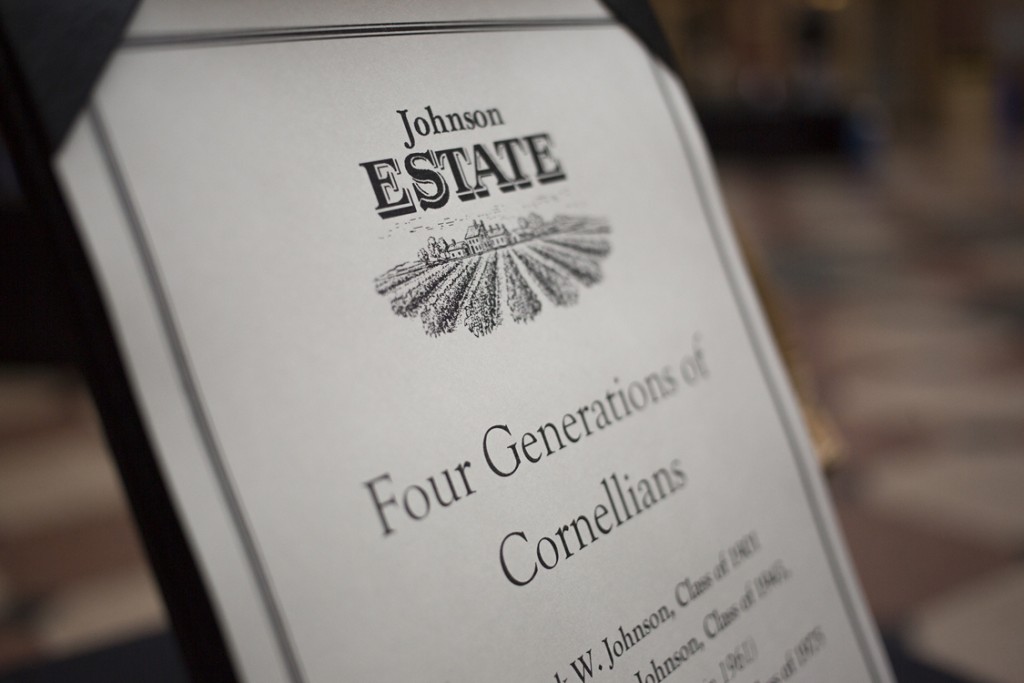
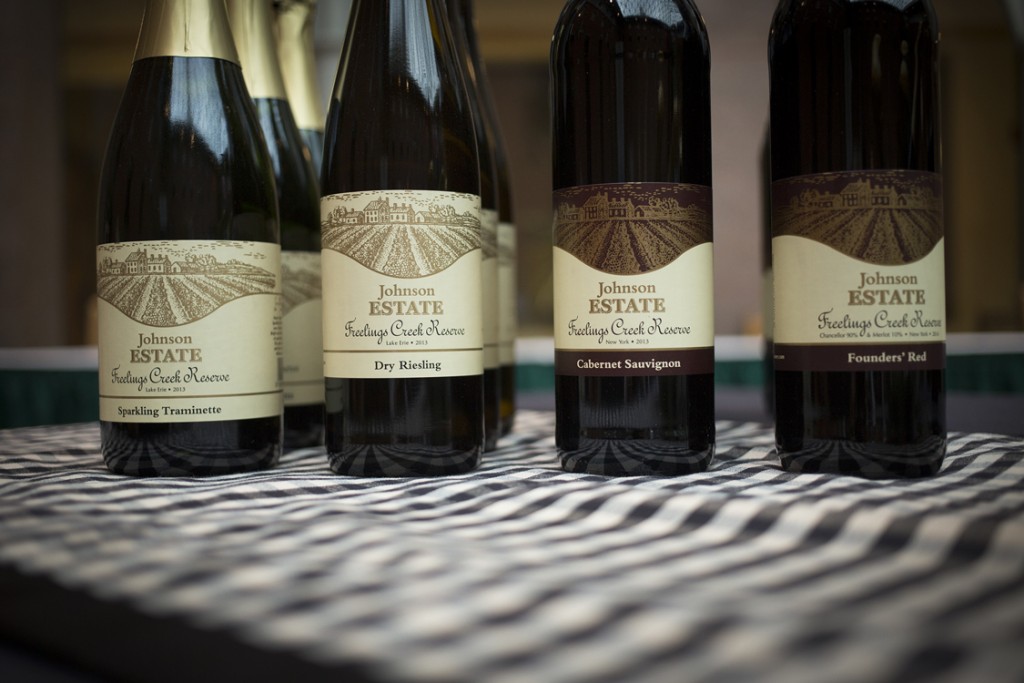
Today, 13 varieties of grapes are grown on more than 115 acres of vineyards on the 300-acre farm. Johnson Estate Winery produces more than 30 award-winning wines, which are sold online, in stores located in New York, Ohio, and Pennsylvania, and right in the Estate’s own tasting room.
As a family-owned, local business, Johnson Estate contributes to the local economy and showcases some of New York State’s valuable natural resources. Over the course of a century, the Johnson family has worked to highlight their business in what has become known as Lake Erie Wine Country.
Success in business ownership involves a passion for what you do.
Looking forward, current owner Jennifer Johnson says, “Western New York is certainly a beautiful place with stunning agricultural vistas and a long and rich agricultural heritage. Local efforts to encourage and improve small town building restoration, agritourism, and farm, waterway, and woodland preservation will maintain these assets and make upstate New York not only more livable and economically vibrant for younger generations and their families, but also more attractive to visitors.”
Fred and Jennifer Johnson, often still involved with their alma mater’s business programming, traveled to Cornell to participate in the 2015 Families in Business Conference, organized by the Smith Family Business Initiative, in early October. They featured some of their wines at the Taste of Family Business Networking Reception, which concluded the conference. During the reception they interacted with MBA students, many of who are prospective entrepreneurs themselves and, like the Johnsons, place value in Cornell’s graduate programs and professional network.
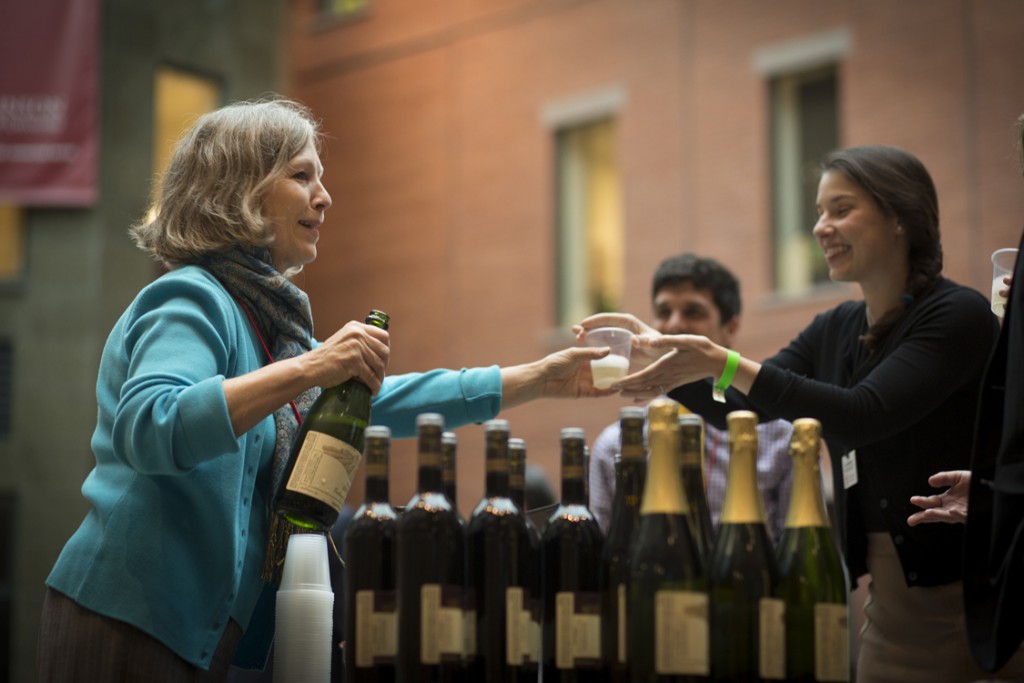
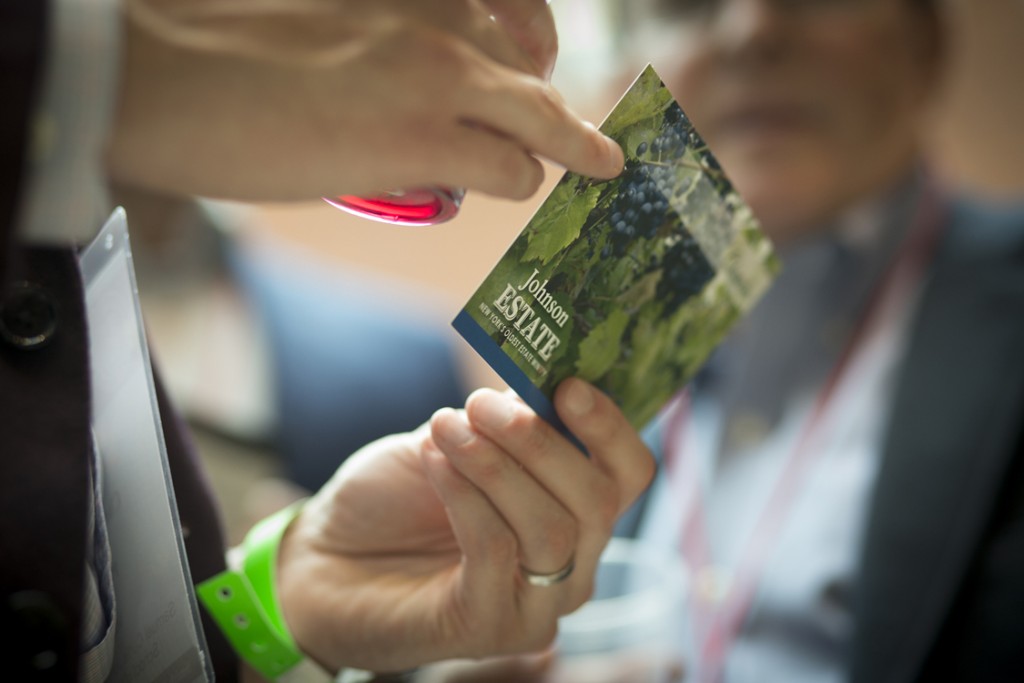
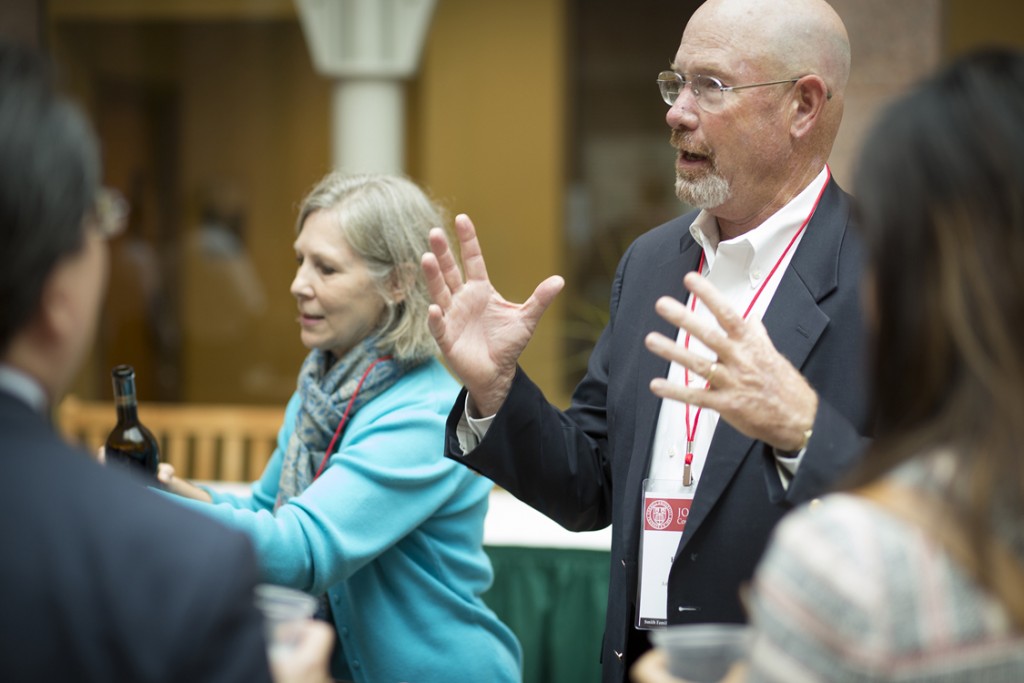
“This type of education can encourage students to be aware of the potential—and the pitfalls—of starting a business,” Jennifer says. “It can also make them sensitive to the potential issues that they might encounter if they end up working for businesses owned by families.”
The conference touched on varying approaches and paths entrepreneurs often take when considering their place within a family-owned business. Across the panels, it was clear that no two paths are exactly the same.
Both Jennifer and Fred Johnson, for example, spent time working outside the family business after receiving MBAs from the Samuel Curtis Johnson Graduate School of Management. Fred worked for 30 years with large and small international food companies. Jennifer held corporate jobs in the finance industry and spent several years donating her time and talent developing and marketing the Chautauqua–Lake Erie Wine Trail in western New York.
. . . living close to the land is an integral part of the package.
These early career experiences she and her husband had in industries related to wine, food, and marketing, gave them useful skills for managing the winery and farm and the perspective to know that that returning to the family business was the right choice. “Making a commitment to starting a business involves . . . a clear understanding of the challenges it entails and a clear analysis of one’s own strengths and weaknesses—these insights are probably most easily acquired by working in similar businesses,” says Jennifer.
Success in business ownership also involves a passion for what you do, Jennifer adds. And she and Fred have found that in their family business, too.
She explains that one of the great things about owning a farm and winery is the lifestyle that it permits, “where the daily task of Fred’s ‘disease-scouting’ vineyard walk is simply part of the day, where sampling wine and food is part of one’s ‘work,’ and where living close to the land is an integral part of the package.”
Jennifer jokes that she is the “chief of landscaping and hospitality” at Johnson Estate Winery. Her love of gardening has made beautification of the grounds one of her priorities, and her interest in local foods prompted the integration of delicious food and wine pairings with the Estate’s vineyard walks and tastings.
Since acquiring the business, the Johnsons have taken on several projects from planting gardens to equipment and facility upgrades. They completed a renovation of the tasting room in 2011, just in time for the celebration of the winery’s 50th anniversary.
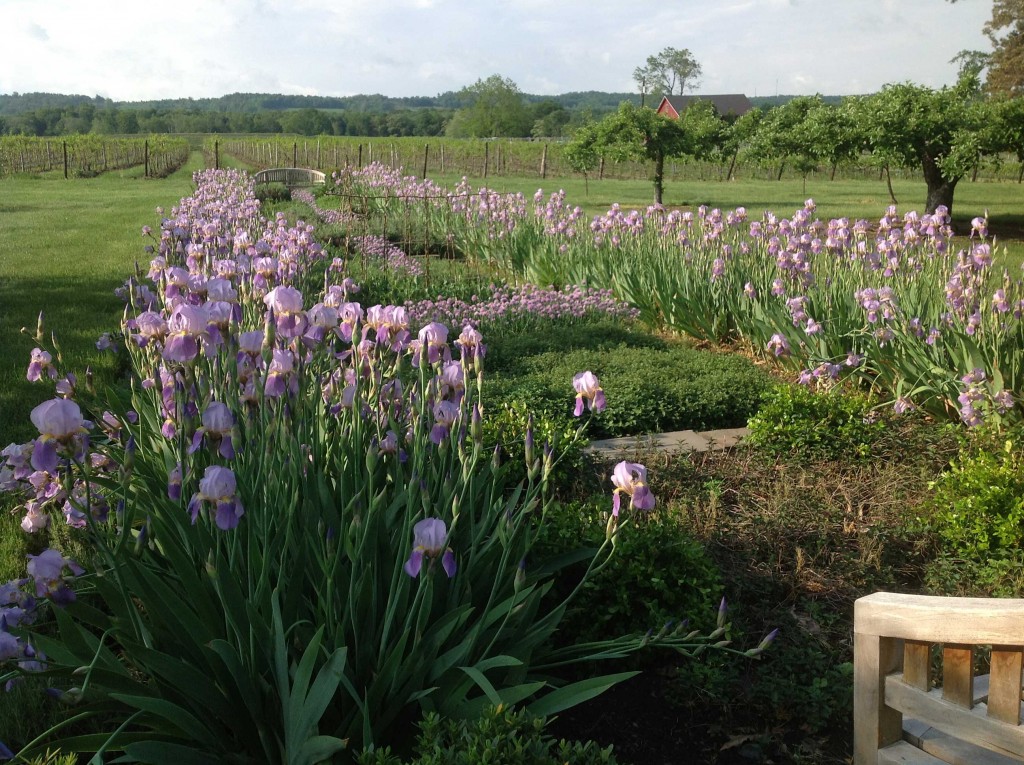
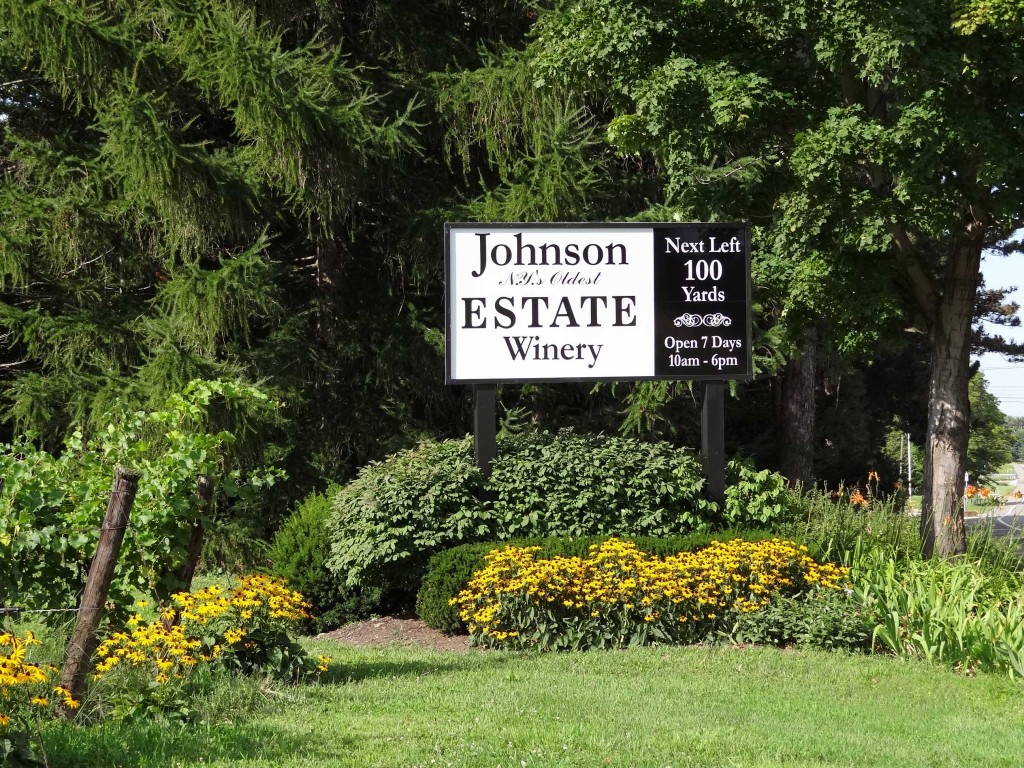
Left: Johnson Estate's large herb garden, surrounded by iris. The garden is a focal point for the winery's French Picnics in the Gardens events in the spring. Right: Another beautification project—black-eyed Susans at the end of the grape rows on Route 20.
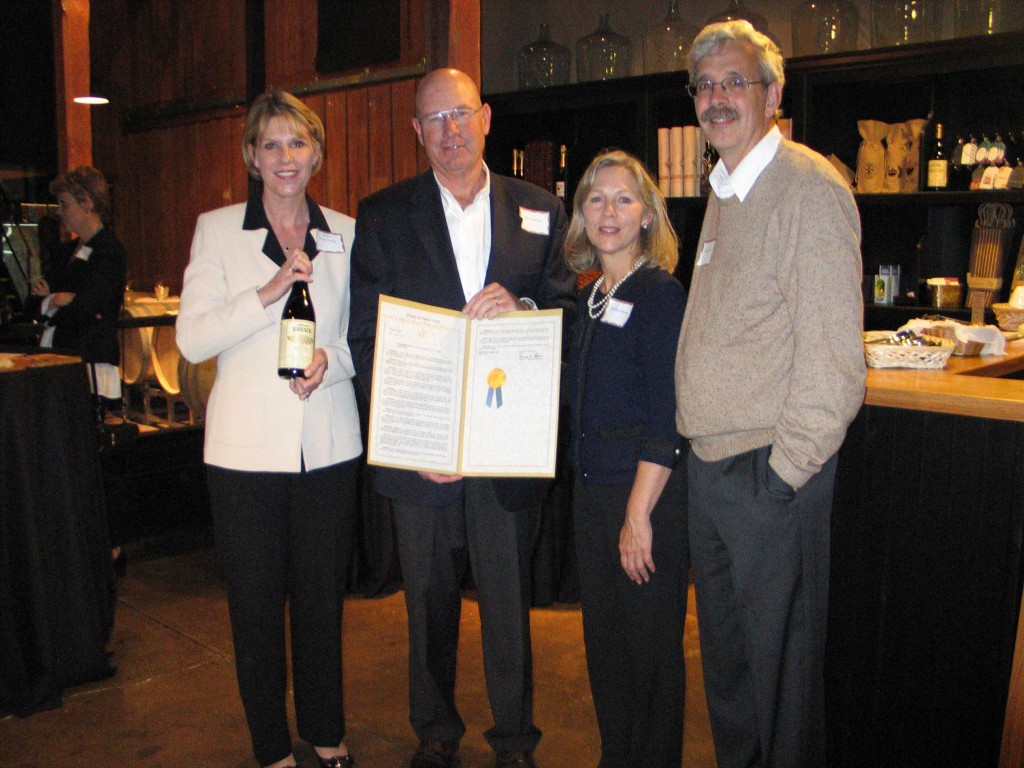
The Johnsons celebrating Johnson Estate's 50th anniversary in September 2011 with a fundraiser for the Grape Discovery Center. Johnson Estate is New York's oldest estate or farm winery, established in 1961. From left to right: Senator Cathy Young, Fred Johnson, Jennifer Johnson, and Legislator Andy Goodell.
From grape to glass, great care and craft go into the creation of the Estate’s variety of wines, but the entire farm is testament to responsible land stewardship. Rather than operating on a seasonal basis, Johnson Estate has found success in hosting public events and maintaining the farm year round, which speaks not only to responsible agriculture, but also to continuous support of the local economy.
Johnson Estate’s creative programming often educates visitors, displays the beauty of the farm and its vineyards, or engages the community and surrounding businesses. In the summer months, some events include Sunday Morning Vineyard Walks, a class titled “What’s Terroir?: Vineyard Walk & Tasting,” and French Picnics in the Gardens. In October, they usually host a series of Fall Foliage Vineyard Walks. And in the winter months of most years, the Estate takes advantage of frigid western New York temperatures to harvest grapes for its gold-medal ice wines.
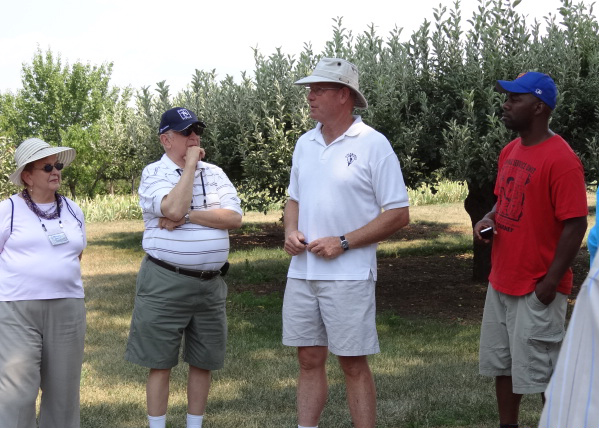
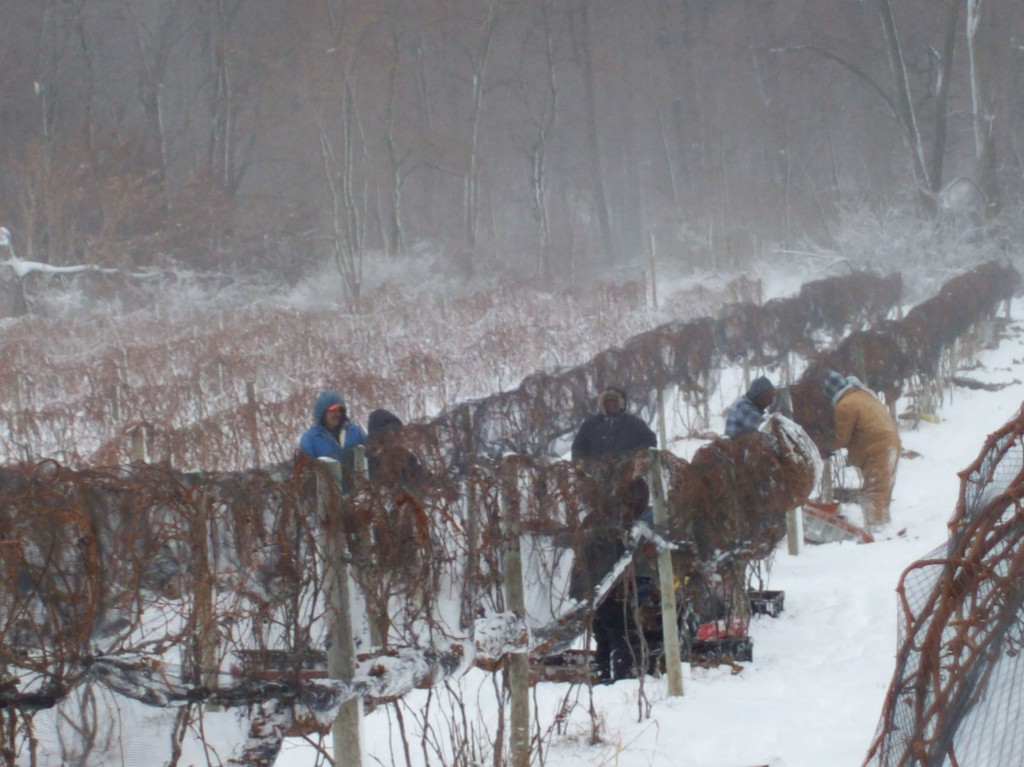
Left: Fred Johnson, center, hosting the "What's Terroir?: Vineyard Walk & Tasting" class. The class is offered as a special course through the Chautauqua Institution. These summer experiential walks began in 2009, and they feature samples of food and wine at three tasting stations with winemaker Jeff Murphy, naturalist Mark Baldwin, and Fred and Jennifer. Right: Harvest time during ice wine season at Johnson Estate. The Estate has been producing ice wines since 1995.
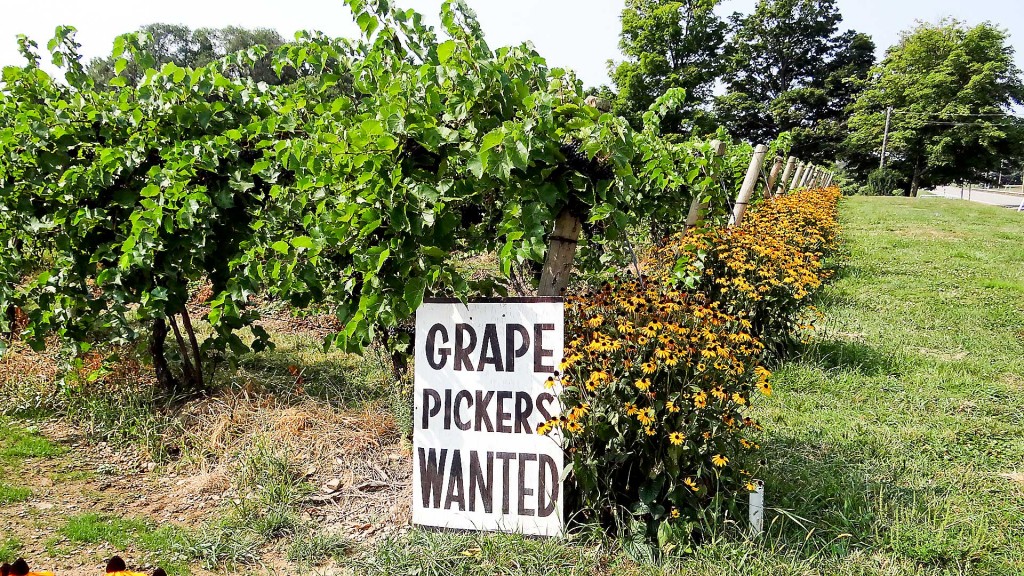
For the first time in September 2015, the Johnsons invited the public to help handpick grapes during harvest time, as the machine pickers could not reach the lower branches in the Seyval vineyards. Pickers were paid $10 per hour and given pulled pork sandwiches and pies from a nearby bakery, Portage pies. It was an event that brought the community together and helped accomplish a task, and it went so well that the Estate may continue it in years to come.
In thinking about what it means to own a family winery and farm, Fred and Jennifer write, “Perhaps the best part is the appreciation that we can—in building and creating new traditions on this century farm—continue to be stewards of the family land, its business, and our community in ways that leave each in a little better condition than we found it.”
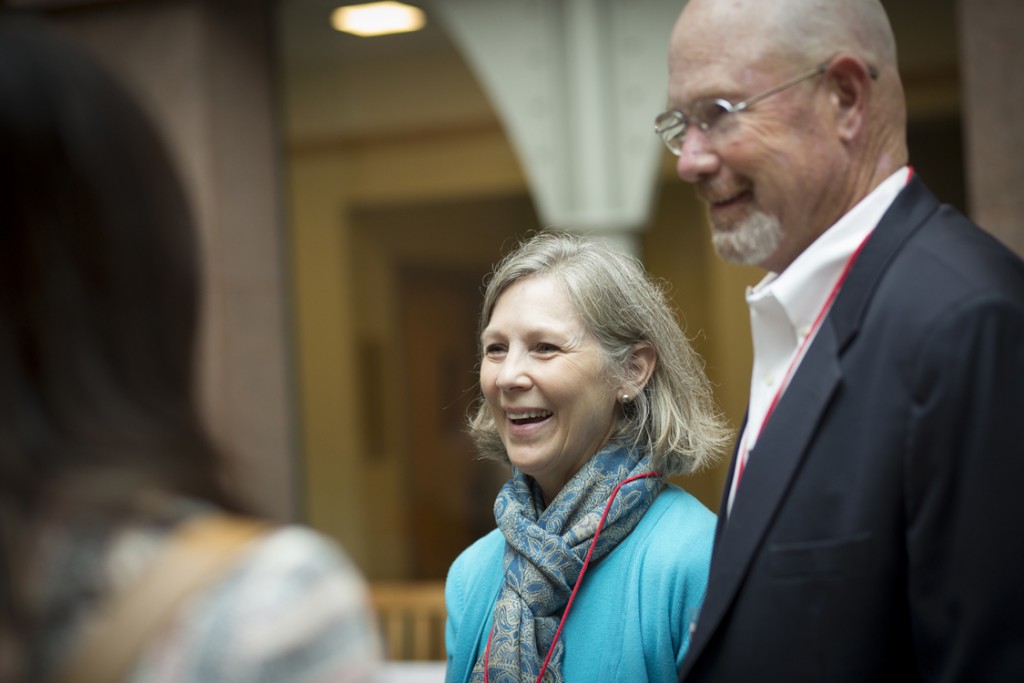
The Smith Family Business Initiative at Cornell was established to support and strengthen businesses that are family and privately owned. Founded in 2014 with a generous gift from John and Dyan Smith, the initiative provides education, networking, and research for family business owners, successors, and students from across the globe.
Learn more about Cornell’s academics, mentors, and campus resources that help support entrepreneurs.
